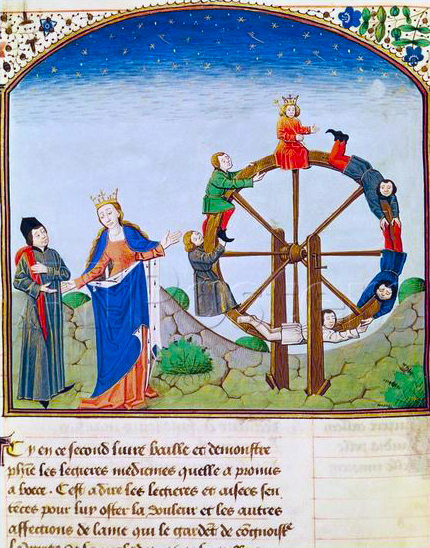
Dr Caroline Cole
Introduction
Prison literature has inspired generations of readers and recently has been hailed as a genre of literature worthy of investigation and study. Ideas about prisoners are challenged when we read some of the works coming out of this institution, and realise that some of our most creative and deep-thinking writers are or have been convicts. This course takes us on an historical route of various genres written both in prison and post-prison, and across fiction and non-fiction, and include autobiography, poetry, novels, letters, journalism, philosophical writings and notes. The range of authors imprisoned is as varied as there are reasons, charges and prisons. Some are pure criminals, some dissenters and one is a hostage. We will explore the writings through the question: ‘Does the experience of prison offer an opportunity for creativity and edification as well as a punishment or terror, and is there a prevailing theme common to all the prison literature we study?’
The aim of the course is to introduce students to the genre of prison literature and to heighten awareness of its variety and the depth of thought and creativity that can be realised, if not generated, by incarceration and, in many cases, isolation. Students will study a selection of different genres and texts written in or after prison experience, and be encouraged to identify and explore themes, images, topoi and ideas weaving their way throughout the literature of incarceration. Issues of authority, literary culture and belonging, inspiration, grief, providence, resistance, separation, otherness and stigma will be highlighted and students will be invited to relate the works, their approaches and circumstances, to their own philosophies and lived experience.
Week 1: Waiting for death. We begin with the Roman scholar and statesman, Boethius, and his philosophy developed while in prison prior to his execution in 524 under the auspices of the Emperor Theodoric. The Consolation’s effect on literature of the West is reflected in its translations into other languages, including those by King Alfred and Chaucer discussed in class. From a very different perspective – voluntary incarceration – we examine the approach to solitude and austerity championed by the writer of Ancrene Riwle, a 13th century manual of instruction for female contemplatives designed to elevate and support transcendence. Finally, a comic monastic text, Cursor Mundi should provide mirth as antidote to more sombre texts so far.
Week 2: Instruction and edification. Moving to the later middle ages and forward covering a period of 200 years, we explore the poem attributed to King James 1 of Scotland, The King’s Quair written purportedly on his release from English prison in c. 1423. This semi-autobiographical partly dream vision text harks back to Boethius for consolation and combines various genres in an allegorical narrative describing loss. Leaping on to the 17th century, John Bunyan’s Pilgrim’s Progress (1678) provides us with insight into the imagination of a devout Christian whose work began imprisoned in Bedford jail for preaching without a licence. Religious context and morality will inform our reading of this text and it is curious to note that despite the distance in time between this week’s texts, both deploy allegory and dream vision to frame and advance their ideas.
Week 3: Stigma, terrorism and persecution: branded by experience. Oscar Wilde and Brian Keenan are the central contrasting figures this week. Wilde’s, through his Ballad of Reading Gaol and De Profundis, finds a multi-generic expression of personal experience of persecution and stigma. Keenan’s philosophical and deeply moving account of his own transformation and transcendence through persecution to understanding inspires readers to greater depths of self-awareness and strength. We compare the experiences of these two authors and the philosophical responses to their individual situations and suffering and will ask the question about the paradox of imprisonment; is it just incarceration or can it also be a creative crucible?
Week 4: Resistance. This is the political prisoner week, exploring how each individual manages her or his incarceration occasioned by political and social beliefs and activism. Nelson Mandela, Malcolm X, Martin Luther King, George Jackson and Angela Davis exemplify struggles for equality, fairness and peace in both South Africa and America. Various means of resistance and the context that enabled or curtailed will be explored this week through their writings and speeches, and with hindsight we may evaluate whom we would consider to be the most persuasive and motivational of these activists. As we do this, we will be invited to self-reflect on commitment, integrity and heroism in our own psyches.
Week 5: Prison turned to profit. The writings of both Erwin James and Piper Kerman, either in prison or post prison, enabled both to forge careers in various writing genres on release. James’ career was developed while in prison serving time for murder and working as a columnist for The Guardian newspaper, providing insight into experiences of being ‘inside’. Subsequently he published an autobiography, Redeemable, that affords him a career as a public speaker. Piper Kerman’s book underpins the popular Netflix series of the same name, Orange is the New Black, documenting her US prison experience for a relatively minor offence. What is the difference between a criminal and yourself, and what makes someone commit a crime that puts them into prison? Concepts of ‘otherness’ and ‘exclusion’ will be interrogated and we ask if it is possible to put away the darker side of the human psyche, or whether it will always cut across goodness when we are least vigilant.
Preliminary Reading (a full list will be sent to successful applicants for this Option).
Boethius, Ancius The Consolation of Philosophy, Revised edition, London, Penguin, 1999.
King, Martin Luther, Letter from Birmingham Jail, available online.
Malcolm X, Letter from Prison, available online.
Mandela, Nelson, Conversations with Myself, 2013.
Summers, Joanna, Late Medieval Prison Writing and the Politics of Autobiography, Oxford, Oxford Scholarship Online, 2004
Wilde, Oscar, The Ballad of Reading Gaol, 1898 available online
© Dr Ken Addison, Oxford Academic Summer School Tours Ltd: for 2024
St Peter’s College Summer School at Magdalen College, University of Oxford

